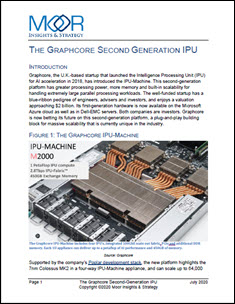Cambridge, UK, December 16, 2020 — Cambridge Quantum Computing (CQC), a specialist in quantum software and quantum algorithms designed to leverage quantum hardware, today announced it will apply much of its recent fundraise on helping clients achieve near-term quantum solutions in their businesses.
Last week the company announced a $45 million financing, the largest private investment ever announced for a quantum software company, according to independent industry sources. Quantum hardware developers IBM and Honeywell joined leading international investment firms in the financing.
With projected gains in quantum computing performance by hardware developers over the next 2-3 years, and with corresponding enhancements in quantum software, Cambridge Quantum believes it can help clients achieve quantum solutions in several key areas during what is known as the Noisy Intermediate-Scale Quantum (NISQ) computing era. These include:
- Using existing quantum computers to provide the best security possible. As part of a joint effort with IBM, CQC launched a beta quantum random number generation (QRNG) service in September initially available to members of the IBM Q Network with applications primarily to protect and defend global
communications and electronic assets.
- CQC is working with the UK’s National Physical Laboratory to accelerate research and development to support the commercialization and optimization of its quantum technologies. A key focus will be enhancing CQC’s IronBridge for the commercial market, a photonic quantum device that ensures device independence and source certifiability of quantum randomness for post-quantum encryption algorithms as well as use cases in science, engineering, finance and gaming. The organizations have committed to an 18-month timeframe for enhanced quantum products for the global market.
- CQC scientists have formerly established that Quantum Natural Language Processing is “quantum-native” with expected near-term advantages over classical computers, enabling “meaning-aware” NLP for the first time. Potential use cases over the next several years are many, including doctors querying the entire medical literature for patient diagnostics.
“Our highly successful financing will enable new possibilities in achieving quantum solutions for clients in several key areas,” said Ilyas Khan, CEO of Cambridge Quantum Computing. “Quantum computing is quickly morphing from the research lab into commercialization and we believe our quantum software and algorithms will play a critical role in this rapid transformation.”




Interesting news. HPC, Quantum and AI momentum really building in and around Cambridge in the UK, given this news, ARM purchase, and new on Saturday that NVIDIA are placing UK’s most powerful supercomputer – Cambridge-1 – at Kao Data on the outskirts of Cambridge. Strong framework being established, which is really making Cambridge the UK’s Silicon Valley.